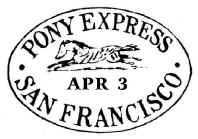Dispute
“CHEMISTS vs PHYSICISTS”, and it seems that the controversy on cold fusion will be finally resolved, but not by the physicists.
The new duel chemists vs physicists has ideological origin. The physicits keep their loyalty to Quantum Mechanics, because they dont accept to change their interpretation on the zitterbewegung, since such a changing requires a very deep modification in the foundations of Modern Physics (the zbw cannot be considered as a helical trajetory in Quantum Field Theory, which is the successor of Quantum Mechanics).
Unlike, the chemists keep their loyalty to the scientific method, according to which any experiment cannot be neglected only because it defies the principles of a theory, as happens now in this duel between Quantum Mechanics and cold fusion.
Nanotehology aplied at electrolysys proceses, very new, in the WWII era batle for deuterium (heawy water) was in the same area.
It has been 14 years since two little-known electrochemists announced, at an infamous news conference on March 23, 1989, what sounded like the biggest physics breakthrough since Enrico Fermi produced a nuclear chain reaction on a squash court in Chicago. Using a tabletop setup, Stanley Pons and Martin Fleischmann, of the University of Utah, said they had induced deuterium nuclei to fuse inside metal electrodes, producing measurable quantities of heat. (Deuterium, a.k.a. heavy hydrogen, has one proton and one neutron in its nucleus.)
"If you 'know' that cold fusion is impossible, then you don't have to pay attention to these results," says Prof. Hagelstein, an award-winning DOE physicist before being ostracized for his work in the theory of cold fusion. "The initial criticism was that people needed to do the [heat measurements] right, but now that some groups have spent millions of dollars doing just that, the critics still won't read the papers."
I, for one, would love to hear smart physicists explain why the excess heat from the deuterium-filled palladium reflects not nuclear fusion but the release of mechanical energy -- sort of like letting go of a stretched spring. I'd love to see a smart critique of a 2002 paper by Japanese scientists, published in a Japanese physics journal that few American scientists saw, describing (shades of medieval alchemists) the transmutation of elements through cold fusion.
What these claims need is critical scrutiny by skeptics. That's how science normally functions. But in cold fusion, it isn't.
And that's the worst pathology of all.
Technorati Cosmos: other blogs commenting on this post














![Reblog this post [with Zemanta]](http://img.zemanta.com/reblog_e.png?x-id=2e9a6c02-58cb-466a-9258-ac33372c378e)